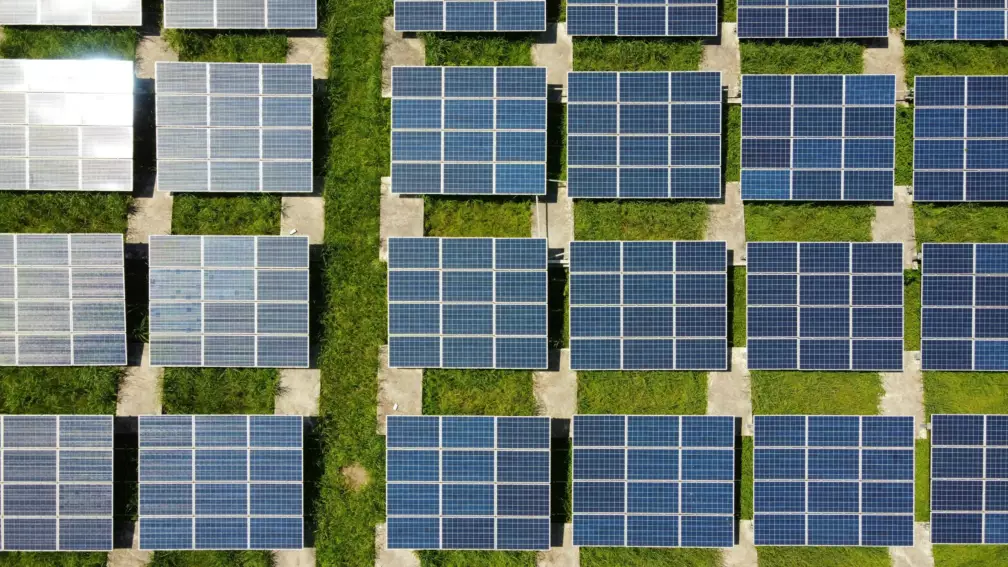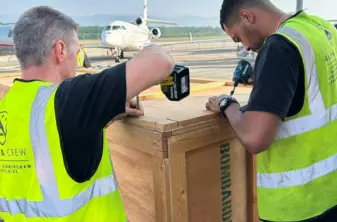How to Make Large Scale Events More Sustainable

Sustainability is a vital focus in the events industry, and it's essential for organisers and event professionals to stay up-to-date with the latest developments in sustainable practices. At Alpha Crew, we are committed to helping you host successful events that are both impactful and environmentally responsible. To support your efforts, we've gathered practical tips and strategies to help you make your next event more sustainable and reduce its carbon footprint.
Set Clear Sustainability Goals
Before you start planning, establish clear sustainability goals tailored to your event. Start by looking at your event’s potential environmental impact, such as: energy usage, waste generation, and transportation emissions. Use this assessment to create actionable goals, such as reducing waste by 30% or ensuring all food and beverage containers are compostable. Having specific targets in place will guide your decision-making throughout the planning process.
Choose Eco-Friendly Venues
The choice of venue plays a key role in your event’s sustainability. Opt for venues that are ISO 20121 compliant (this international standard ensures that the venue adheres to best practices in sustainable event management). Many of these venues offer green energy options, recycling programmes, and sustainable catering. By choosing a venue that prioritises sustainability, you set the tone for your entire event from the very beginning.
Look at Suitable Transport
Transportation is one of the largest contributors to an event's carbon footprint. Encourage your attendees to use public transport to the event. Some venues and cities offer discounts on public transport for event attendees, which not only reduces emissions but also makes it easier for guests to arrive on time. Another idea is to also provide incentives for using eco-friendly transport, such as discounted tickets or special access to event perks.
Reduce, Reuse, Recycle
Adopt a zero-waste mindset by minimising single-use items and prioritising reusable materials. This can be as simple as using digital tickets instead of printed ones or providing refillable water stations. Recycling should be a key focus of your waste management strategy. Mark recycling stations throughout the venue and educate attendees on what can and cannot be recycled, this will also encourage recycling during an event.
Turn Your Catering Green
Food and drink may not be featured in all events, but they are important, yet can also be very wasteful. Work with your caterers to create a sustainable menu that includes plant-based options, local and seasonal ingredients, and minimal packaging. Plan carefully to avoid over-catering, and arrange for any leftover food to be donated to local charities. This not only reduces waste but also supports the local community.
Opt For Renewable Energy
Wherever possible, opt to power your event using renewable energy sources. Solar, wind, and hydroelectric power can be used to run lighting and sound systems, along with other essential equipment. If the venue doesn’t offer renewable energy, consider hiring a green energy supplier or even using kinetic energy solutions like pedal-powered generators. This not only reduces your carbon footprint but can also engage and educate attendees about renewable energy.
Promote Digital Communication
Ditch the paper and go digital! Use electronic invitations, tickets, and event programmes to reduce paper waste. Digital communication is not only more sustainable but also more efficient. With the right event management software, you don’t have to print a single sheet of paper. It’s far easier and more flexible too, giving you the ability to update attendees, plus allows for quicker response times for feedback and customer service.
Choose Sustainable Vendors
Work with suppliers who share your commitment to the environment, whether it’s for catering, décor, or logistics. Look for vendors who offer eco-friendly products and have their own sustainability certifications. Building a network of green suppliers will help you maintain high environmental standards across all aspects of your event.
Constantly Monitor Your Carbon Footprint
No matter how sustainable your event is, there will always be some level of carbon emissions. Use carbon calculators to measure your event’s carbon footprint and invest in carbon offsets to neutralise it. These offsets fund environmental projects, such as reforestation or renewable energy initiatives, that reduce carbon emissions elsewhere. This not only reduces your event’s environmental impact but also demonstrates your commitment to sustainability to your attendees.
Educate and Engage Attendees
Engage your attendees to optimise your event’s sustainability. Educate them about how they can contribute and encourage them to choose sustainable practices, for example encouraging attendees to bring reusable water bottles or dispose of waste properly. These little actions can compound to create a more sustainable event overall.
Creating a sustainable event is not only about reducing environmental impact but also about creating a better experience for your attendees. You can host an event that’s successful and environmentally responsible by educating your audience, choosing the right suppliers, and opting for sustainable power sources wherever possible.
At Alpha Crew, we know the importance of sustainability in the events industry, and we’re here to help you make your event successful and sustainable. If you want some more information about how to improve your event’s sustainability, get in touch, we would love to support your next event.


